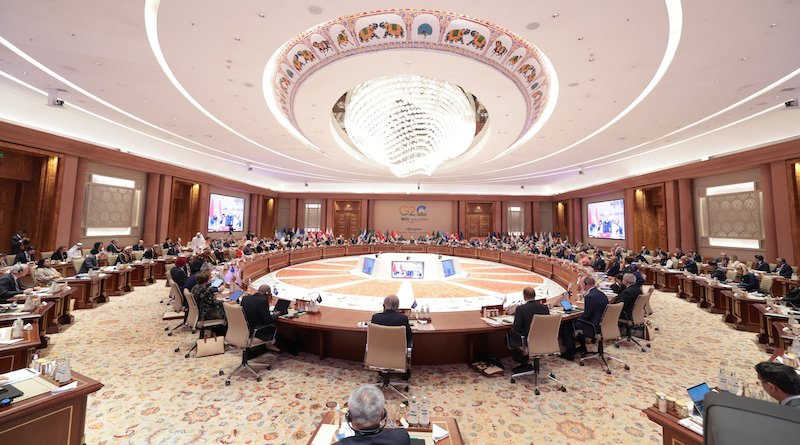In the modern interconnected world, the economic stability of one nation can have consequences around the globe. Thus, international financial groups meet at summits to address the most pressing global challenges. Among these gatherings, the G7 and G20 summits stand out as premier platforms for economic discussions and policy coordination.
G7 Summit
The Group of Seven, commonly known as the G7, is an informal forum of seven of the world’s largest advanced economies: the United States, Canada, the United Kingdom, France, Germany, Italy, and Japan, with the European Union also participating. The G7 summit, which is typically held annually, serves as a stage for high-level diplomatic discussions on a wide range of global issues, with a strong focus on economic matters.
One of the primary objectives of the G7 is to foster economic cooperation among its member countries. This is often achieved by discussing monetary policies, trade relations, and fiscal strategies. The decisions made at the G7 summit can have significant implications for international financial markets, global trade, and economic growth.
The G7 has historically played a vital role in crisis management, particularly during financial crises. The summit provides a platform for swift and coordinated action when global economic stability is threatened. The 2008 financial crisis is a prime example of how the G7 countries collaborated to stabilize the global economy. For example, member nations implemented substantial fiscal stimulus programs to boost domestic demand and counter the recession, in addition to discussing global financial regulations and oversight to prevent future crises.
While the G7 was initially established as an economic forum, it has broadened its scope over the years. Today, discussions at the summit encompass a wide array of issues, including climate change, security, and health. This expansion reflects the recognition that global economic stability cannot be achieved in isolation from other global challenges.
G20 Summit
The G20 summit, which is composed of 19 individual countries, the European Union, and the African Union, represents a more diverse set of economies than the G7. This inclusivity is a testament to the G20’s role as the world’s premier economic forum.
The G20 includes not only the G7 members but also emerging economies like China, India, Brazil, and South Africa. This diversity is crucial, as it recognizes the shift in economic power toward these nations and ensures a more comprehensive approach to global economic governance.
Created in response to complex global economic challenges in 1999, the G20 summit addresses issues ranging from trade and fiscal policy to financial regulation and development. Given its size and influence, the G20 plays a pivotal role in crafting global economic policies that are more representative of the world’s economic reality. Since 2008, the G20 has met at least once annually.
The G20 embodies the spirit of multilateralism, promoting cooperation and coordination among nations. As global challenges like climate change, the pandemic, and poverty require a unified approach, the G20’s importance goes beyond economic issues and includes broader international diplomacy.
G10 Summit
The G10, short for “Group of Ten,” is a collection of ten major industrialized nations that meet regularly to discuss and coordinate economic and financial policies. Established in 1962, the G10 includes the U.S., U.K., Canada, Germany, France, Italy, Sweden, Belgium, the Netherlands, and Switzerland. The group consists of countries that have signed on to the General Arrangements to Borrow, an agreement to provide funding to the International Monetary Fund (IMF). G10 nations collaborate on matters such as exchange rates, financial stability, and monetary policy. While not as prominent as the G7 or G20, the group remains influential in shaping international economic policy and financial regulations.
Other Important Global Financial Meetings
While the G7 and G20 summits are often in the spotlight, numerous other global financial meetings contribute significantly to the world’s economic landscape. For example, the IMF and the World Bank hold regular meetings to discuss financial stability, development, and poverty alleviation. These institutions play a vital role in providing financial assistance to countries in need and promoting sustainable economic growth.
Additionally, the World Trade Organization (WTO) convenes Ministerial Conferences to discuss international trade policies. These meetings are essential for resolving trade disputes and promoting fair and open trade relations among nations.
Central bank governors from around the world also meet periodically to discuss monetary policies, exchange rate stability, and the global financial system’s soundness. These gatherings help ensure that financial institutions are prepared for potential economic shocks. Regionally, leaders convene at economic forums such as the Association of Southeast Asian Nations (ASEAN), the African Union, and the BRICS grouping, which includes Brazil, Russia, India, China, and South Africa. These forums facilitate cooperation and policy coordination within specific regions, which can have a substantial impact on the global economy.
Global financial meetings are more than just discussions among policymakers; they are the cornerstone of a stable and prosperous world. The G7 and G20 summits, along with other significant financial gatherings, provide the platform for countries to tackle economic challenges collaboratively. These meetings highlight the interconnectedness of our world, where the financial stability of one nation has impacts worldwide.

